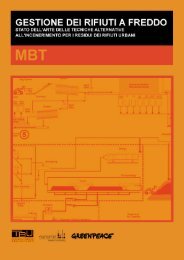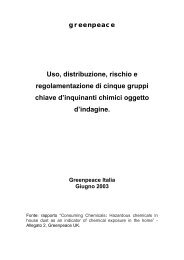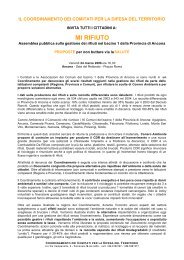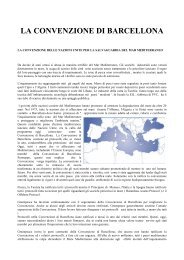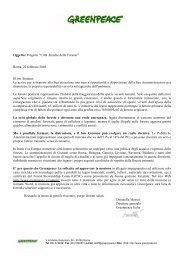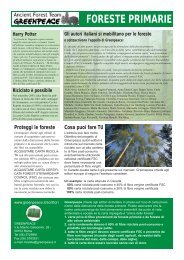Zero Waste by Robin Murray, Greenpeace Environmental Trust 2002
Zero Waste by Robin Murray, Greenpeace Environmental Trust 2002
Zero Waste by Robin Murray, Greenpeace Environmental Trust 2002
Create successful ePaper yourself
Turn your PDF publications into a flip-book with our unique Google optimized e-Paper software.
The central point again, as in the case of municipal waste,<br />
is a clarity about goals. There may be strengthening<br />
independent pressures upon the corporate world to<br />
improve environmental performance, but these need to be<br />
contextualised within a clear government perspective. The<br />
government alone can provide leadership and purpose on<br />
issues that span the range of particular interests.<br />
Business itself recognises this. The Advisory Committee on<br />
Business and the Environment gave priority to its<br />
recommendation that: ‘government makes clear to<br />
business the broader goal of resource productivity in its<br />
policies on waste minimisation and reducing waste to<br />
landfill’. 118 The role is one of intellectual and policy<br />
leadership.<br />
In the case of energy and climate change the ground has<br />
been well set, and the work of translating it into<br />
immediate policy was undertaken <strong>by</strong> a small task force led<br />
<strong>by</strong> Lord Marshall. 119 In the case of materials productivity<br />
and materials substitution, the new perspectives are less<br />
widely known.<br />
• The government should establish a Design for the<br />
Environment Commission.<br />
The Commission should identify the potential of these<br />
innovations in the UK context, draw up a programme for<br />
conversion, establish a set of targets and develop the<br />
policies needed to achieve them. The Commission would<br />
be made up of leading international specialists in the field<br />
of the green materials economy together with their<br />
equivalents in the UK. Their report should set out the new<br />
paradigm of green production. The policies to promote it<br />
should provide the incentives and make the sources of<br />
advice and information available for those who choose to<br />
pursue the approach. A report of this kind would provide<br />
the basis for synthesising the work of government and<br />
industry in this field.<br />
This is a first step. At the same time, an immediate start<br />
should be made on extending the idea of industry<br />
agreements introduced as part of the Climate Change levy.<br />
In this instance the agreements should not be negotiated<br />
solely with firms, but with groups of firms engaged in a<br />
particular product chain or production of materials.<br />
One initiative of this kind which has been in operation for<br />
more than a decade is taking place in Holland. In 1989<br />
the Dutch Parliament established a waste minimisation<br />
target of 10% <strong>by</strong> 2000 which was applied (flexibly) to 29<br />
priority waste streams. For each of the streams, waste<br />
minimisation plans were drawn up through consultation<br />
between industry and government, and these were then<br />
translated into individual company environmental plans.<br />
The sectoral plans were embodied in covenant agreements<br />
between the industries and the government, and all<br />
companies in the sector or chain were issued with a<br />
handbook setting out the goals of covenant and a list of<br />
possible minimisation measures. Headway was made most<br />
rapidly with sectors which already had integral<br />
environmental tasks, such as the chemical industry, paper<br />
and paper goods and the dairy industry, but the work was<br />
then extended to other groups. 120<br />
Processes of this kind are already taking place in the UK<br />
around producer responsibility programmes, but there is a<br />
strong case for widening their scope and extending them<br />
to other sectors within the framework of national waste<br />
reduction targets. In particular sectoral working groups<br />
should consider how actions taken in the field of materials<br />
efficiency, product performance, product life extension<br />
and feedstock substitution could be linked to the CO2<br />
reduction targets and future emissions trading.<br />
National and local<br />
The emphasis of industrial <strong>Zero</strong> <strong>Waste</strong> policy has been on<br />
actions to be taken <strong>by</strong> national government. But within a<br />
new policy framework there is much that local and<br />
regional government can also do. The national Clean<br />
Production Centre should be established with a network<br />
184<br />
<strong>Zero</strong> <strong>Waste</strong><br />
185



